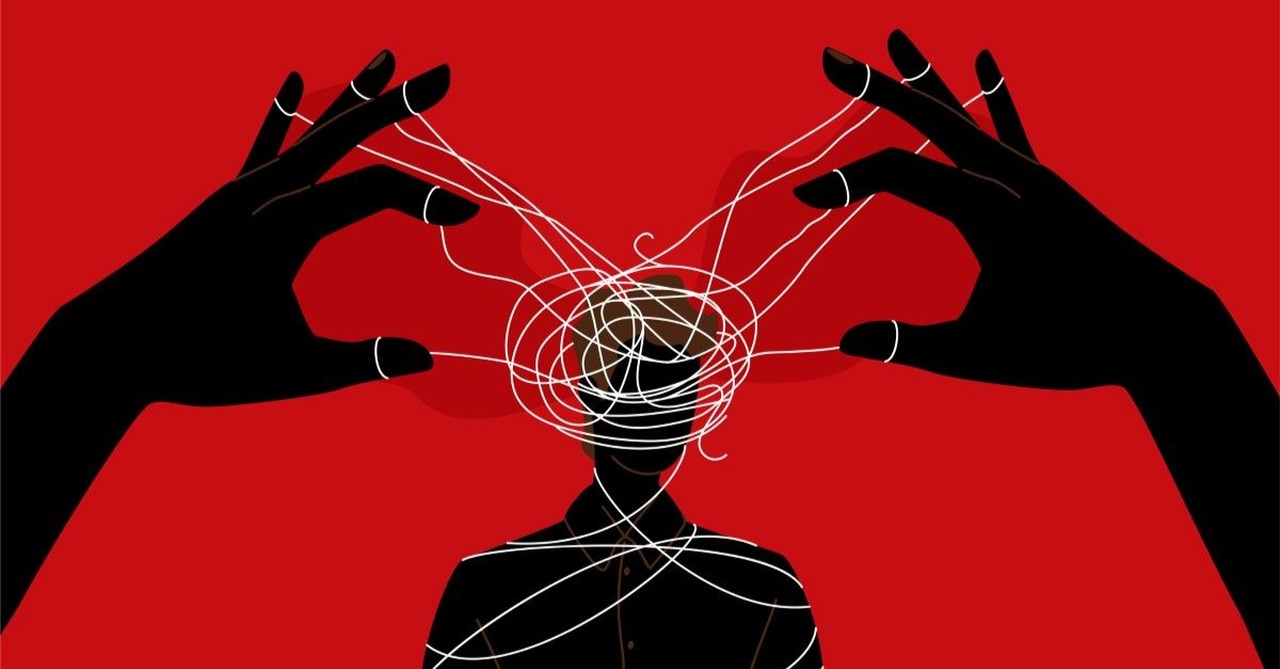5 Things Demon Possession Is Not

Various views abound in Christian circles about what demon possession is and is not. In history, people commonly associated possession and spiritual attacks with psychological illness and physical disease.
Mental struggles were also pushed aside as spiritual problems caused by evil spirits. Today, some churches continue to hold these views and want us to believe that any problem in life is associated with a demon.
On the other extreme is a denial of anything spiritual. Christians in this group think that modern society has proven that possession and evil spirits are mere superstitions, lingering beliefs of a former age. They argue that Jesus was stooping to the beliefs of the times when He “cast” out demons. For them, evil exists only in the abstract.
Yet, the Bible teaches us something much different. Satan exists, as do fallen angels known as demons. They followed Satan in his rebellion and continue in his work today by fighting against the spread of the gospel and the spiritual growth of believers.
Although the devil and demons often get more credit than they deserve in terms of power and influence, they are active in the world. They can and do possess people.
Jesus encountered many such people in His earthly ministry, offering them healing and liberation from demons because He is the all-powerful Son of God.
Believers may feel hesitant to discuss a topic like possession in today’s relativistic society. They might also reason that they do not need to think about this topic since every person who has placed faith in Jesus’ death and resurrection cannot be possessed (Romans 8:9-11; 1 John 4:4).
However, we need a biblical view of demons and their activity in the world today. The rise in the occult’s popularity (New Age spirituality, astrology, crystals, Wicca, etc.) means we will likely encounter people who are oppressed by evil spirits and even some who have experienced or will experience possession.
To understand this topic from a scriptural standpoint, though, we need to look at what demon possession is not.
Photo Credit: ©GettyImages/tatianazaets
1. Demon Possession Is Not Mental, Psychiatric, or Psychological Illness

1. Demon Possession Is Not Mental, Psychiatric, or Psychological Illness
SLIDE 1 OF 5
A common misconception among some Christian groups is that those who suffer from mental or psychiatric disturbances are demon-possessed. These believers think that someone who struggles with depression or schizophrenia, for example, is under the influence of malicious spirits.
Instead of seeking to find the suffering person proper treatment, these Christians will stigmatize mental and psychological problems as spiritual issues.
This view stems largely from a lack of education about mental and psychological health. Popular terminology also contributes to this misunderstanding, such as when individuals refer to “past demons” or “facing my demons.”
A mixture of lack of knowledge and confusion about terms has contributed to some churches’ bias and stigma against mental conditions.
Far from being the effects of demon control, mental and psychological illnesses are present in the world because of the Fall of Man. Before the Fall, everything was good, so Adam and Eve did not feel depressed or ashamed (Genesis 1:31).
Neither did they suffer from delusions or hallucinations. Sin entering the world changed the good world God had created into a broken place where people suffer from disease and die (Romans 5:12). Living in a world darkened by sin is the cause of mental and psychological issues, not demon possession.
Thankfully, in recent years, many Christians, churches, and ministries have promoted a biblical understanding of emotional well-being, mental health concerns, and psychological conditions. These individuals and groups are helping others properly understand these issues from a biblical viewpoint.
Also, they are encouraging and mobilizing churches to become agents of healing and hope for sufferers of mental, psychiatric, and psychological illness instead of promoters of stigma.
Photo Credit: ©GettyImages/BulatSilvia
2. Demon Possession Is Not the Cause of Physical Illness

2. Demon Possession Is Not the Cause of Physical Illness
SLIDE 2 OF 5
Deliverance ministries abound today, offering services to those who are spiritually oppressed. People involved with these ministries believe that problems they encounter in life, including issues with physical ailments, are a result of demonic influence.
According to some of these ministries, the ailments we encounter have a specific demon attached to them. To rid themselves of these afflictions, they must cast out the demon. Deliverance ministries meet this need, offering prayers and healing for those experiencing spiritual bondage.
In the Bible, individuals did experience physical symptoms during possession. A child was thrown down in a convulsive fit during an account of possession (Luke 9:42).
Others were bound by physical afflictions, such as muteness or a crippled body (Matthew 9:32-33; Luke 13:11-16). Some Christians may assume, based on these examples, that demons can cause physical illness.
However, we need to remember that just because certain symptoms were associated with affliction from a demon does not mean that a person suffering from an illness is demon-possessed.
For example, the boy only experienced a convulsion because he was possessed. He is not like others who suffer from epilepsy due to a neurological or biological disorder.
Jesus healed others who had physical illnesses, which were not associated with spirits, during His earthly ministry.
The woman with the bleeding disorder suffered for numerous years due to her affliction, but she was not demon-possessed (Luke 8:43-48). The blind man in John’s gospel also was not under the influence of an evil spirit (John 9:1-12).
We should be careful not to jump to conclusions about illnesses. Just because a person has a physical condition does not mean it was caused by a demon or an act of sin (John 9:1-3).
Nor does it mean they need help from a deliverance ministry or to engage in spiritual warfare. They need medical treatment, which God has lovingly provided in His general grace to humankind.
Photo Credit: ©iStock/Getty Images Plus/KatarzynaBialasiewicz
3. Demon Possession Is Not Why We Sin

3. Demon Possession Is Not Why We Sin
SLIDE 3 OF 5
Connected to the topic of deliverance ministries is the idea that certain sins come from demonic influence.
For instance, people involved in these ministries would argue that addictions are due to a spirit’s control in their lives, as are struggles with sexual immorality. If a person wants freedom from a specific sin, they must seek prayer and healing.
The problem with this view is that it fails to acknowledge the reality of sinful human nature. We are all born with a nature inclined towards sin and freely choose to do wrong. Hence, Scripture tells us that “There is no one righteous, not even one” (Romans 3:10; Psalm 14:1). We all fall short of God’s glory (Romans 3:23).
A problem with sin, such as drunkenness or adultery, is not due to a demon. Humans are fully capable of doing wrong without the help of evil spirits, though Satan does like to urge us along.
As R. C. Sproul wrote in an article on the Ligonier Ministries website, “We can never say, ‘The Devil made me do it.’ We can say that we are tempted, incited, or seduced by Satan, but not that we are controlled or coerced by him.”
What people must fight against in times of temptation is not demons but the sinful flesh. This is only done through the power of the Holy Spirit as we walk in accordance with His guidance (Galatians 5:16).
Instead of blaming demons for our sins, we need to confess and take responsibility for our actions, seek forgiveness, and find true deliverance from sin in Christ.
Photo Credit: ©Getty Images/Ardasavasciogullari
4. Demon Possession Is Not What We See in Horror Movies

4. Demon Possession Is Not What We See in Horror Movies
SLIDE 4 OF 5
Hollywood tells us that demon possession sounds and looks a certain way: a deep, unearthly voice. Hair draped in front of a face, covering a devilish grin. Creepy children crawling across walls and contorting their bodies.
Many people watch these movies without any belief that demons are real, let alone that these malicious spirits could enter and control a person. For others, though, the only knowledge they have of the demonic is from horror movies like The Exorcist.
Although a large amount of these movies has been influenced by Christianity and accounts of Catholic exorcists, we need to practice discernment when examining these films. Horror movies are meant to scare, so a lot of what is shown in them is exaggerated and sensationalized.
A common theme in films is that children are the main victims of demon possessions, usually young girls. Scripture does include accounts of children suffering from possession, but they are not the only targets of Satan’s attacks.
For example, in the Bible, a grown man was possessed by a multitude of demons, collectively called Legion (Luke 8:26-39). A woman, who was crippled, also suffered from demonic oppression (Luke 13:11). Demons can attack both adults and young people. There is no age limit.
In addition, contorted bodies, people crawling on walls, and excess violence may be popular on the screen, but not all possessions are like that.
As Father Francesco Bamonte is quoted as saying in an article by Carol Glatz on the website for the United States Conference of Catholic Bishops, “The destructive fury of the demon … does not always occur in exorcisms or, at any rate, not with the virulence depicted in the movies."
Just because possessed individuals do sensational things in movies does not mean this always occurs in real life.
Horror movies also provide misleading information about exorcisms. Unlike these movies, which emphasize that a demon can only be cast out through a ritual and with great personal struggle, the biblical truth is far different.
Jesus cast out demons because He is God and greater than evil spirits. The apostles, likewise, relied on Jesus’ power to drive out demons. Today, the same is true since people can only experience freedom from demons and possession through the power of Christ. Rituals do not deliver anyone.
Neither Catholics nor Protestants trust in their own authority to free people from demonic oppression and possession.
Instead, they trust that Christ is greater and will work to free afflicted people from a demon’s control. Christians ask for Jesus’ help in these situations through prayer and a firm trust in Scripture.
To confront a demon or Satan personally is inviting danger and attack (Acts 19:13-16). Even the Archangel Michael did not confront Satan on his own, but said, “The Lord rebuke you” (Jude 1:9). All Christians are wise to do the same, trusting in Jesus’ power and sovereignty.
Photo Credit: ©GettyImages/SeventyFour
5. Demon Possession Is Not as Common in Western Countries

5. Demon Possession Is Not as Common in Western Countries
SLIDE 5 OF 5
In the Western world, there are a variety of things that keep people distracted and blinded to the good news of Jesus.
We have media that numbs people to the severity of sins like adultery and murder. The modern world urges us not to worry about sin or spiritual matters. It tells us that God is not real and that Satan is just an invention from an earlier time.
Unbelief and moral apathy are rampant in the Western world — Satan’s work is having its desired effect.
Yet, the devil’s work around the globe looks different. People in other countries are commonly aware of the reality of the spiritual realm. They fear that spirits will harm them or their families, thus motivating them to offer sacrifices or pray. Demonic attack and possession are an everyday reality.
Missionaries to other places in the world often encounter individuals who have been oppressed by demons. Some gospel workers even meet demon-possessed people.
For example, when missionary and writer Amy Carmichael served in Japan, she encountered a man who was possessed by six “fox” spirits.
Elisabeth Elliot describes in the biography A Chance to Die: The Life and Legacy of Amy Carmichael, that after spending time in prayer and fasting, Carmichael and a friend visited the possessed man and proclaimed that the Lord Jesus could cast out the spirits (Revell, 1987, pp. 89-90). They prayed and left with the assurance that God would work. The man was freed of the demons.
People in America and Western countries might view such stories with skepticism, but those in other areas are wise to acknowledge the existence of the spiritual realm. Satan is actively trying to keep people away from faith in Christ. Believers should not ignore this reality.
We should realize why hearing the gospel and the truth that Jesus disarmed the powers of the spiritual realm and triumphed over them is so life-changing for individuals in other parts of the world (Colossians 2:15). They learn that they do not have to live in spiritual bondage anymore.
Jesus sets them free. No longer do they have to fear the threat of demonic possession or oppression because the Holy Spirit lives inside them. As the Bible declares, “For the Lord is the Spirit, and wherever the Spirit of the Lord is, there is freedom” (2 Corinthians 3:17, NLT).
There are many things demon possession is not, but we should never think that demon possession is a myth. Scripture emphasizes the reality of the spiritual realm while assuring us that Jesus Christ, our Savior, is stronger and greater than all.
Photo Credit: ©iStock/Getty Images Plus/anyaberkut

Originally published April 19, 2024.









